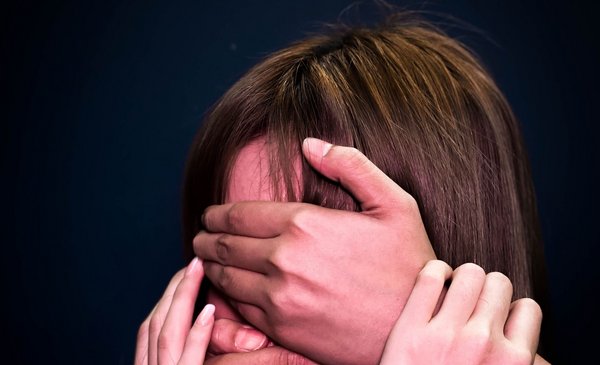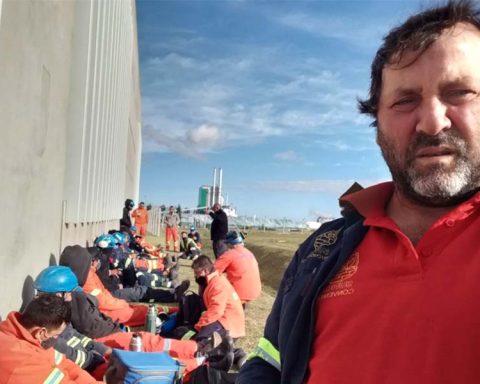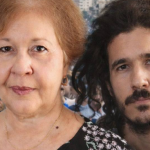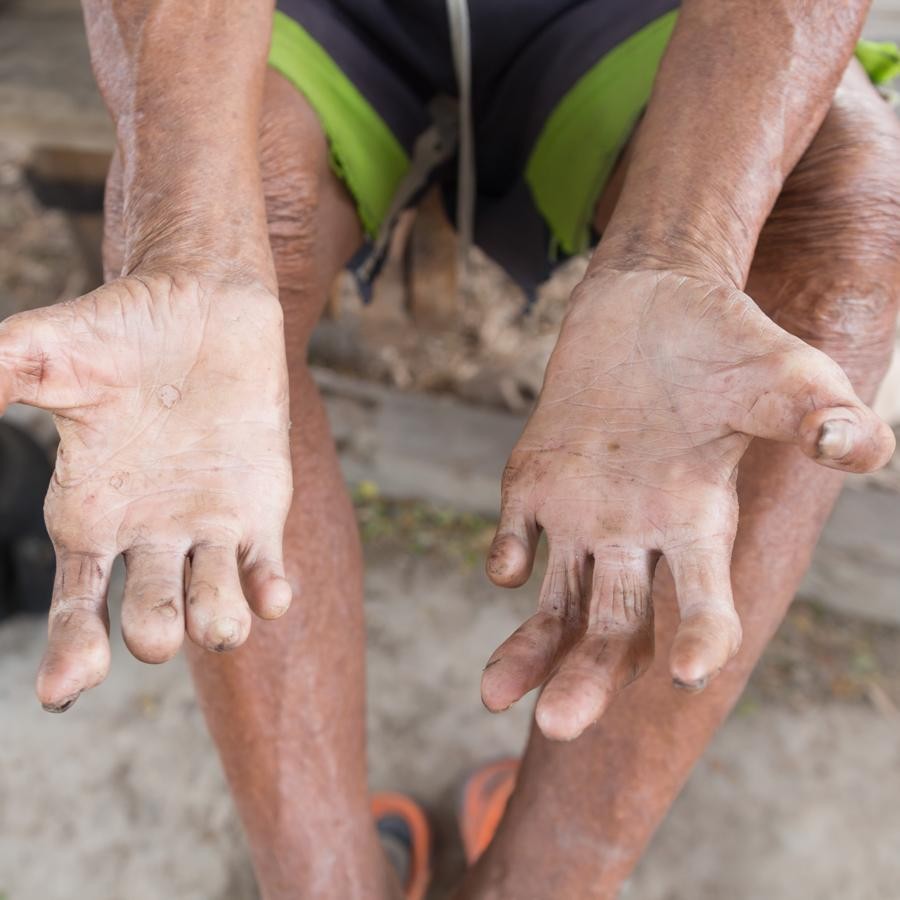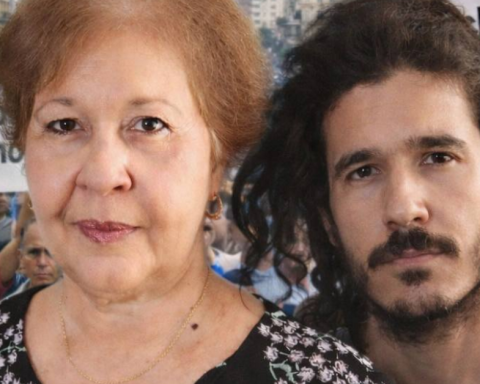If your uncle raped you, why did you go back to his house for vacation every summer? Do you like to suffer? Why didn’t you stay at home, with your mother, back in the capital?
These questions –in the voices of others– were going around in the head of the Argentine writer Belén López Peiró for years. Her case is one of many in which a family member repeatedly rapes a minor. And after that, the thousand voices that perpetuate those situations and immortalize them under her skin. López Peiró, in his book why did you come back every summer (2019) reproduces his own voice, his uncle’s, his wife’s, and his mother’s. She also that of a doctor and his lawyer, according to the newspaper Quétaro de México. All voices that invaded his head and sealed his silence for so many years.
More than 15 years after the abuses he suffered began, in May 2022, he shared on his Twitter account a statement from the wife of José Alperovich, an Argentine legislator whom his niece denounced for sexual abuse. “This girl came home, she played with my grandchildren, she used José’s house to celebrate her birthday. Why would she come back if she felt so bad and she would be abused?” the woman told Radio Con Vos.
López Peiró’s uncle was sentenced at the beginning of 2022. That same year, Alperovich was prosecuted and his case was brought to an oral trial. In both cases, the Justice found merit to make that decision.
The writer and the senator’s niece were demanded to know why they were returning to the place where supposedly they had made them suffer. Is it not true? Could it be that they did not suffer? On this side of the Río de la Plata, the woman who denounced having been raped by three men in Maldonado on January 15, the police officers who attended her told her that does not seem raped. She was vehemently explaining what she had suffered, then does not seem be a victim
Juan Raúl Williman is a professor in charge of the Legal Office of the University of the Republic, an institute where they represent victims of criminal offenses free of charge. In January 2022, 2 out of 3 cases they dealt with were sexual abuse. “The issue of ideal victims is a problem. It is deeply rooted. To believe that there was rape, people need the victim to have been tied up, left unconscious and abused by more than one. If the person is not so weak and left … Not to mention if she’s a sex worker or if she’s a girl who went out to a party and voluntarily drank alcohol or smoked something… Now when she doesn’t meet the parameters, with the gender stereotypes that we all have rooted against, it becomes very difficult for the rest to see her as a victim,” she told The Observer.
In a stereotypical vision, the rape victim’s life is destroyed, she can’t speak, she can’t stop crying, she can’t establish a bond with anyone anymore because everything reminds her of that moment. The rape victim cannot have fun again, let alone have a moment of dispersion close to the date of the event. And less than less she can go back to the place where it happened, be it her uncle’s house or a party where she decided to drink alcohol. The “good victim” doesn’t do those things.
In reality, there are many “bad victims” who do do all of this regardless of the moment they had to go through. And in many cases they remain under the magnifying glass.
Mariela Solari, director of the Victims and Witnesses Unit of the Attorney General’s Office, does not hesitate when asked what worries victims of sexual abuse the most: that don’t believe them. Or that they no longer believed them when they told it for the first time. There is a large portion of the abuses that are against children and adolescents and that also influences.
Although some are repeated more than others, there are as many reactions to the traumatic situation as there are victims of abuse. “The degree of affectation will depend on the characteristics of the victim, the type of abuse, the link with the offender, the characteristics and position of the offender, the chronicity and the reaction of the environment in the disclosure is key. The disclosure in sexual crimes will always be “In the first instance, it is confused, disordered and loaded with guilt and shame that make the story more complex. That can translate into anger, retraction, it depends on each person,” he described in dialogue with The Observer.
The list of feelings that Solari has seen is endless. Guilt, fear, ambivalence, confusion, anger, worry, fearfulness, and more. But also –in a smaller portion of cases– there is strength, confidence, thirst for justice. This second group of cases usually occurs when the victim “has managed to go through a process of elaboration that has allowed them to gain confidence and understand what they suffered as an abusive and violent situation, and their reactions are more associated with recognizing themselves as a victim – and their offender as such.” –, to the search for justice, so that others do not suffer the same”. But that reaction doesn’t mean the abuse didn’t happen.
The assistant professor of the Gender Program of the Institute of Health Psychology of the Faculty of Psychology, Raquel Galeotti, said that there are different characteristics and personal circumstances that make one face a situation of violence in a certain way. “The coping capacity, the social support, the social or family network that you have, if there are aspects of previous vulnerability, your history, if you have previously suffered violence, etc., influences since they are shock absorbers,” warned the psychologist, who is also an expert at the Forensic Technical Institute (ITF).
But in addition, all the stages of the process vary. Soledad Suárez, who teaches at the Udelar Clinic and who legally assists victims, sees it first hand and also perceives how it becomes a matter of discussion in the judicial arena. While she, like her lawyer, shows the victim’s evidence of post-traumatic stress in court, reveals his suicide attempts and describes the medication the victim takes, there are defenses that present photos of the victim going out to dance or produced for go out. “The pain can pass in different ways and there are people who judge by a photo, which is taken in a second and it is not even known if it is from the moment. Nobody knows if after that night of partying he spent four days without leaving his house or attempted suicide,” he said.
The abuses denounced by López Peiró occurred in the 2000s and the polyphony of voices did not shape the media or social networks. Today, the Victims and Witnesses Unit of the Office of the Attorney General of the Nation recommends to those complainants whose case is publicly disclosed that they stay away from social networks for a long time.
The right to have the right
This week, the 23-year-old girl who denounced the Barcelona FC player for sexual abuse resigned from claiming any financial compensation – which by law corresponds to her – if the footballer is found guilty after the judicial process.
By the way, the Argentine journalist Leila Guerriero wrote in her column in the Spanish newspaper El País: “We want the victims chaste, we want them white, we want them pure (…) Meanwhile, the complainant felt compelled to show herself blameless. To be white, to be pure, to be chaste. A necessary overacting – I insist, I emphasize: necessary; it is not an attack on her but on the contrary – so that no one suspects that she is lying in order to obtain economic gain”. The journalist, who paraphrased a poem by Alfonsina Storni, stressed that since the time the text was written, things have changed. “They would have to change faster. No one should feel compelled to demonstrate moral purity in order to be entitled to entitlement,” she closed.
In Uruguay, the gender-based violence law (19,580) obliges those convicted of sexual abuse to pay compensation of 12 monthly earnings from the convicted person’s salary or, failing that, 12 minimum wages. The spirit of that article sought that the victim was, in some way, repaired. This, in addition to having extra money available to be able to finance eventual psychological treatments to be able to cope with the trauma or even, in cases in which they had to stop working, become a way of life for a period of time.
The psychologist Galeotti affirmed that the majority of the victims with whom she has interviewed had no idea that they were entitled to receive compensation if the judicial process turned out in their favor. “They are away from that notion,” she maintained.
Suárez, as a defender, tries to inform them that they have that right. “Reparation is a fundamental human right. Here we are talking about compensation, which is only a part (…) We have discussions with the Prosecutor’s Office about whether to request precautionary measures on the assets and the idea always ends up giving up because ( fear) of what they will say”, he lamented.
Because of me
In 2019, an 18-year-old Uruguayan teenager reported to the Police that her boyfriend’s father had raped her. He had gotten into her bed while she was sleeping and forced himself on her. At the time of the trial, the man said that he had consensual relations with the young woman, that she walked around the house in a “half-transparent” nightgown, that she had seduced him. She declared in the Prosecutor’s Office that this never happened.
Not only – according to his version – it never happened, but he was not going to feel guilty about it either. But he felt guilty when he got home and his mother, crying, told him: “Why did you do that? Why didn’t you listen to me? Why didn’t you listen to me? That’s why I didn’t let you go and stay. to other people’s houses, this had to happen to you for you to open your eyes”. After recalling it in his judicial statement, he admitted: “I blame myself for all this, if I had not left (from my house) all this would not have happened and I would not be like this. I don’t eat well, I got anemia, I don’t want to go out anymore, I want to stay home.”
The 1st Turn Court of Appeals sentenced the man to four years in prison.
But complaints do not always end like this. In many cases it is not possible to prove the abuse, in another percentage –which is considered residual– they can be false and in others the victims are not emotionally fit to finish the process and withdraw the complaint.
Lawyer Suárez insisted that the first stage is generally very confusing. “I had a case in which a victim the day after the incident wrote a message to her abuser in which she said ‘you broke the window of my house, the lock was broken, they were out of place’. It took her about two days to understand that what had happened to him was sexual abuse!” he said.
“Many times she transfers the problem of whether they believe her or not, many times she herself cannot see herself as a victim. They begin to think about what she did to generate that. When that is not part of the problem. She thinks about what she did, about what what she put on, what she took… As if all this allowed another to cross the limit of what she wants to do or not do,” explained her colleague Williman and stressed: “If the victim does not identify himself as such, the perpetrator You may be in the same situation.”
“Shame is combined with guilt, because they did not do what they should have done to avoid it. As if that were possible!” Galeotti summarized.
This increases when the abuse occurred in a dispersed environment: a party, an outing or a meeting that was voluntary at first and then was not. “They think they have part of the responsibility. But what is the answer? Don’t go to a party? Or don’t go and don’t drink? But if you’re a man, you can go to the party, drink, have a good time and enjoy. If you’re a No woman, because you know…” what can happen, concluded the lawyer.
In a courtroom – Suárez considered – things “run in better lanes” and there is not so much prejudice. But “the court is late. Before you already went through the Police, you went through friends, you went through the coroner, you went through the prosecutor, there are better and worse.”
He concludes: “Before reaching the competent court they already shattered you.”
